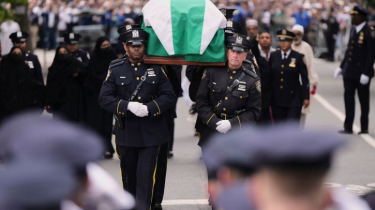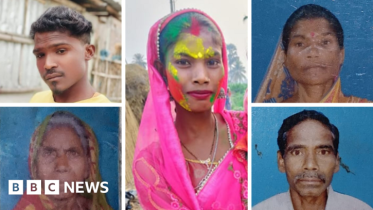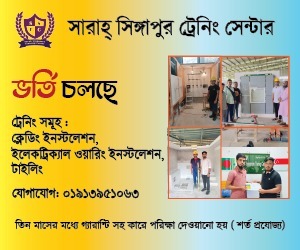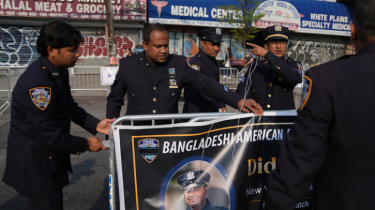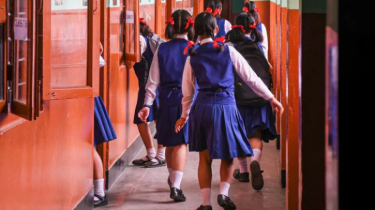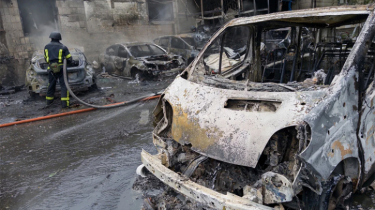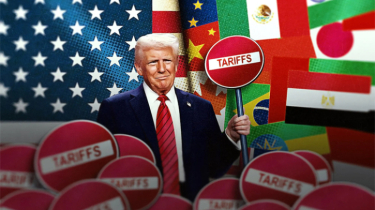A Funeral Shines a Light on the Bangladeshis Thriving in the N.Y.P.D.
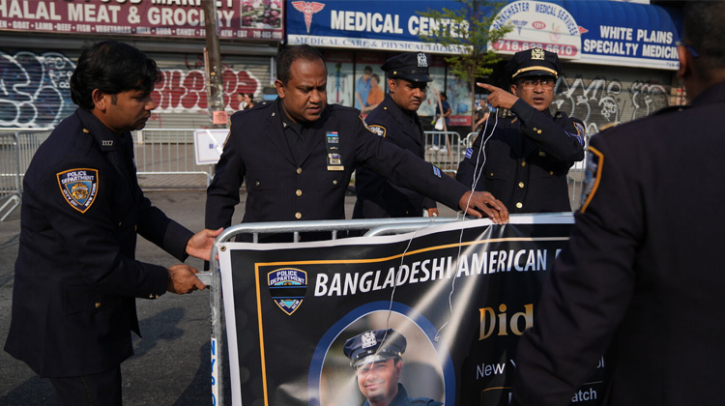
Published : 18:15, 2 August 2025
A solemn funeral held at a Bronx mosque has brought widespread attention to the growing presence and influence of Bangladeshi American officers within the New York Police Department (N.Y.P.D.). The ceremony, honoring a fallen officer of Bangladeshi descent, not only marked a moment of collective grief but also revealed how deeply integrated this immigrant community has become within one of America’s largest and most visible public institutions.
Inside the three-story mosque, dozens of uniformed NYPD officers — many of them Bangladeshi — gathered respectfully on the floor, observing traditional Islamic funeral rites. Their presence was a powerful symbol of cultural and professional convergence, showing how immigrant identity and public service can exist in harmony. Outside, police motorcycles and patrol cars lined the streets, a stark contrast to the spiritual calm inside — and a reminder that the NYPD now mirrors the diversity of the city it serves.
The Bangladeshi American Police Association (BAPA), formed to support officers of Bangladeshi heritage, now boasts over 1,000 members out of the department’s 34,000-strong force. The group has become a vital resource for mentorship, community engagement, and intercultural understanding within the NYPD. What began as a handful of officers in the late 1990s has steadily grown into a vibrant and organized presence, reflecting the broader demographic shift in New York City.
For many of these officers, joining the NYPD represents both a path to upward mobility and a way to serve the communities they once only imagined being part of. Many are first-generation immigrants or children of immigrants who grew up in working-class neighborhoods across Queens, the Bronx, and Brooklyn — areas that today host some of the largest Bangladeshi populations in the country.
Beyond the funeral, the story speaks to a larger transformation. In an era where law enforcement often faces questions of trust and representation, the inclusion of Bangladeshi officers has helped bridge gaps between the department and Muslim communities. Officers often serve as translators, community liaisons, and cultural navigators, helping to resolve conflicts, build relationships, and foster mutual understanding.
The funeral, while somber, was also a celebration of identity, service, and resilience. As prayers were recited and eulogies delivered, it became clear that the Bangladeshi American officers in attendance were not just mourners — they were a testament to the immigrant spirit that defines much of New York’s story.
As BAPA leaders noted, the increasing representation of Bangladeshi officers is not simply about numbers — it is about visibility, voice, and a commitment to making the NYPD a more inclusive institution. Through their presence, sacrifice, and professionalism, these officers continue to reshape the narrative of what it means to serve and protect in one of the most diverse cities in the world.
BD/S



